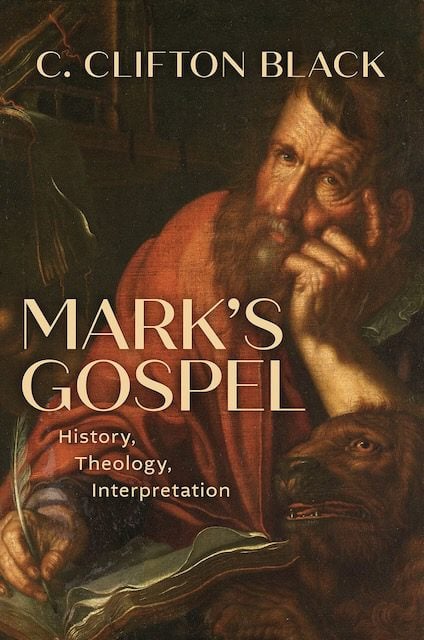Q. Your mentor was Moody Smith at Duke. He mainly focused on the Gospel of John. What prompted you to choose to do a dissertation on Mark?
CCB: It was Moody Smith who spurred me—not by intention, but in fact. In my first year of doctoral study I enrolled in a course he taught on the exegesis of Mark’s Gospel. I was gobsmacked by Mark then and have been ever since. After the spring of 1982 I knew I would be concentrating on Mark, though I had no idea what my dissertation’s topic would be. Once admitted, I had opted to matriculate at Duke to study with Moody. I did not plan to specialize in Johannine studies. I wanted to apprentice myself to a scholar of the first water, who was dedicated to theological interpretation of scripture and biblical scholarship for the benefit of the church and its gospel. My debt to him can never be repaid.
Q. You are o.k. with the notion that this Gospel has a Roman provenance and audience (which by the way can be supported by a lot of little things in this Gospel like the use of the term Syro-Phoenician, not used in the eastern end of the Empire, or the Latinisms), and you also see it as likely addressing Christians under pressure if not straight up persecution after the fire in Rome. I agree with you, but what then are the flies in the ointment with Richard Bauckham’s argument that it was intended for a much broader audience?
CCB. I hold Professor Bauckham’s erudition in high esteem but am less confident than he about defining Mark’s intent with such precision. The force of his argument, as I understand it, is that none of the Evangelists would have been satisfied by addressing a localized audience; they endeavored to reach listeners beyond a specific community. We simply do not know that. Given the situation-specificity implied by the other Gospels, manifest in Paul’s letters and other New Testament writings, to me it seems more plausible that Mark addressed the concerns of a particular group, that his Gospel traveled beyond its original bounds, and that it was quickly adopted elsewhere as a source for Matthew and Luke, perhaps also for John. That we still are reading Mark’s Gospel is proof that it reached a vast audience, irrespective of its author’s aim.
Incidentally, for all the ink that has been spilt on Mark’s provenance—whether Rome, Syria, Jerusalem, or elsewhere—I doubt whether that question is answerable. And I doubt how much it matters. We don’t know whether Paul wrote to the Philippians from a prison in Caesarea, Rome, Ephesus, or someplace else. Such ignorance doesn’t inhibit our understanding of that letter, which also gained traction in the church universal far beyond Paul’s imagining.














